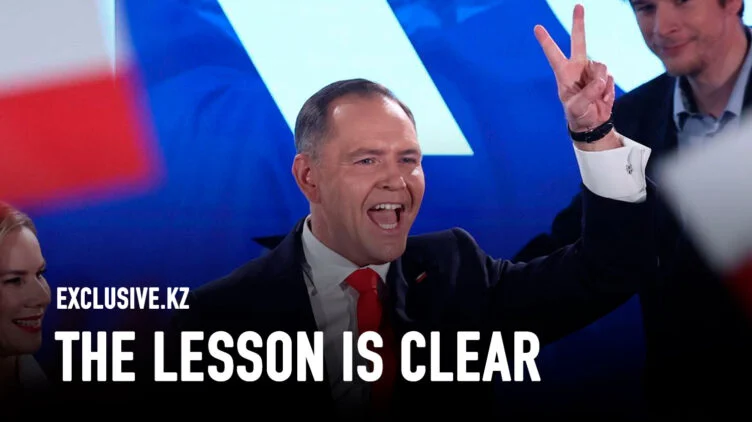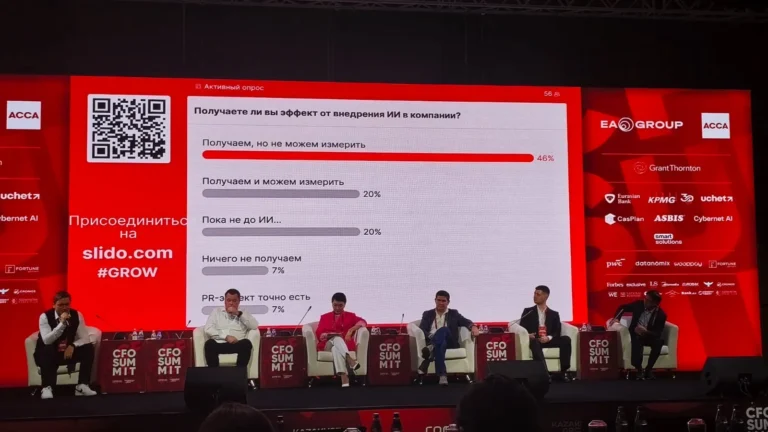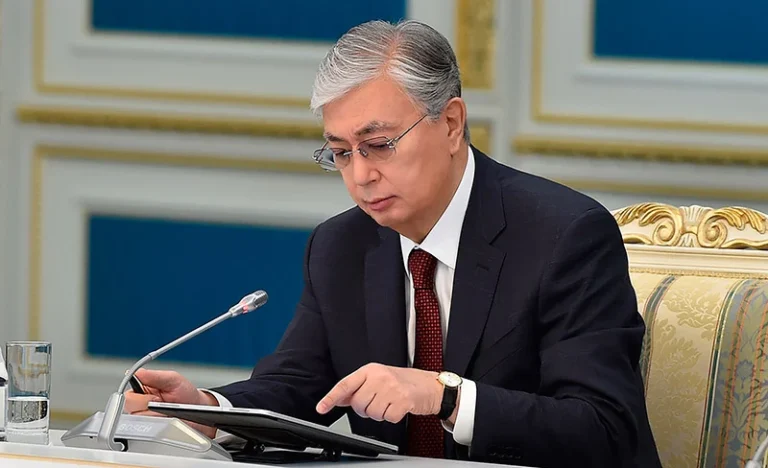A Beer With a Far-Right Extremist Couldn’t Save Poland

Far-right populist victories invariably produce a wave of desperate soul-searching and breathless commentary. The nationalist Karol Nawrocki’s razor-thin victory over Rafał Trzaskowski in Poland’s presidential election is no different. But in answering the question of what happened, one might echo political scientist Larry Bartels’s explanation for Donald Trump’s electoral victories: not much.
Marginal political shifts can affect electoral outcomes. In this case, one could point to the growing unpopularity of the government led by Prime Minister and former European Council President Donald Tusk – a big-tent coalition built around the center-right Civic Platform, which nominated Trzaskowski. But, in general, elections reflect deeply entrenched cultural divides.
Poland elected a conservative president because it is a deeply conservative country. This might not be the impression given by foreign media, which often focuses on the cosmopolitan bubble of the country’s urban elites. But the average Polish voter remains deeply attached to traditional values and increasingly skeptical of the social changes associated with European Union integration.
This has been apparent in a string of presidential elections, which can be won only with an absolute majority of the popular vote: four of the last five such contests have been won by candidates backed by the right-wing Law and Justice (PiS) party. The only exception – Bronisław Komorowski, who won in 2010 – is a practicing Catholic, father of five, and avid hunter. That is an exceptionally conservative profile by Civic Platform standards – especially compared to that of Trzaskowski.

The son of a jazz musician, raised in Warsaw’s arts milieu, and a polyglot trained in international relations, Trzaskowski epitomizes liberal Poland. His tenure as Mayor of Warsaw only reinforced that image – one that contributed to his loss to Andrzej Duda in the 2020 presidential election. While Duda’s victory was narrow, it should have indicated to Civic Platform that Trzaskowski might not be the best candidate to run this year. And yet, he was nominated again, reflecting how disconnected Poland’s liberal elites are from the country’s broader political culture.
Nowhere was this clearer than in Trzaskowski’s attempt to court supporters of the far-right Konfederacja (Confederation) party, led by Sławomir Mentzen. Having won nearly 15% of the vote in the first round, and with Trzaskowski and Nawrocki evenly split, Mentzen emerged as a potential kingmaker.
Mentzen is, to put it mildly, no moderate. In 2019, he became infamous for his “five demands”: a Poland without Jews, homosexuals, abortion, taxes, or the EU. A successful entrepreneur, he continued to shock by marketing a beer called “White IPA Matters,” following the protests triggered by the police murder of George Floyd in Minnesota in 2020. In a television ad, a Black bartender ironically proclaims: “That is what I need.”
Ahead of the runoff, Mentzen seized the moment by issuing eight new postulates, ranging from a pledge to veto any tax increases and eurozone accession to rejecting penalties for anti-LGBT hate speech, opposing further EU integration, and supporting gun rights. He then invited both second-round candidates to debate each other and sign any of the postulates they endorsed.
Nawrocki appeared first and signed all eight, as expected. Trzaskowski then joined the conversation, remaining cordial, candid, and thorough. But what attracted attention was a video of him sharing a beer with Mentzen and Foreign Minister Radosław Sikorski afterwards. The video instantly went viral. “To a Poland that unites, not divides,” tweeted Sikorski. “Cheers,” added Tusk.
Among liberal commentators, the beer moment became an instant symbol – a bold, if uncomfortable, gesture of national reconciliation. But little attention was paid to the substance of their discussion.
Mentzen’s postulates, for all their dog whistles, were more moderate than his earlier rhetoric. There were no overtly anti-Semitic or bigoted statements, no calls to leave the EU, and no mention of banning abortion. His opposition to Ukraine’s NATO – but not EU – accession is arguably moot, given Trump’s determination to keep Ukraine out. On LGBT rights, Mentzen spoke of revisiting limitations on free speech, but did not mention civil unions or adoption.
In other words, Mentzen gave Trzaskowski a strategic opportunity to engage on policy. This was no accident: his Confederation has a clear interest in weakening PiS, its main rival on the right. But Trzaskowski failed to seize this opportunity and seek a true policy bargain with his interlocutor. He endorsed four of the eight proposals – with heavy qualifications – and declined to sign any of them.
It is fashionable now to urge liberal and moderate parties to reach out to conservative voters. But this narrative remains steeped in elite condescension. Much of the outreach is not about true listening, let alone compromise, but about performative gestures such as, in Trzaskowski’s case, raising a glass with an extremist. Evidently, that is not how you win over voters – especially at a time when digital media have produced a more engaged electorate.
Mentzen, for one, recognizes this. Days after the viral beer video was filmed, he produced a widely watched livestream offering a point-by-point critique of Trzaskowski’s hedging and inconsistencies. While he reiterated his openness to dialogue and refused to endorse Nawrocki, he concluded bluntly: “I see absolutely no reason to vote for Trzaskowski.” His base agreed. In the runoff, 88% of Confederation voters backed Nawrocki.
The lesson is clear. If liberals and democrats rely only on shallow symbols, they will keep losing. Only by seriously reckoning with voters’ values and anxieties can they mount a credible challenge to far-right populists.
Copyright: Project Syndicate, 2025.





Все комментарии проходят предварительную модерацию редакцией и появляются не сразу.